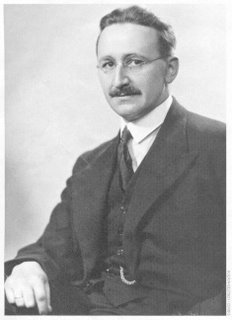 Margaret Thatcher cites F. A. Hayek as her major influence. He received a doctorate of law and political science from the University of Vienna. Not knowing much about his work, I think The Road to Serfdom is considered to be his most influential book. He wrote it, he writes in the introduction, in bits and pieces over a couple of years. It’s a short book, 178 pages long.
Margaret Thatcher cites F. A. Hayek as her major influence. He received a doctorate of law and political science from the University of Vienna. Not knowing much about his work, I think The Road to Serfdom is considered to be his most influential book. He wrote it, he writes in the introduction, in bits and pieces over a couple of years. It’s a short book, 178 pages long.It should be noted that the book was published in 1944, during the middle of World War II, during the rise of fascism and communism. He wrote the book with the express intention of warning people that centrally planned economies could only lead to totalitarian government. Hayek positions himself as a classic liberal, and quotes liberals like John Stuart Mill. Central to his ethos is freedom of the individual, with minimal government meddling.
Margaret Thatcher must have been in her early to mid twenties when she first read The Road to Serfdom. She would have had relatives fighting fascism as soldiers (yes I know, she later defended Pinochet to the hilt). So you can see on the one hand how she came to hold the arguments in this book so dearly. The back of the book even has a blurb by George Orwell. I looked up the full review of the book in my complete George Orwell: he agreed with the book’s thesis, but said he found it depressing that we would all be controlled by money and capitalists.
Having said that the book was written as part of the fight against communism and fascism, the book has not really dated that much. The central thesis of the book – freedom of the individual, and how free markets are intergral to this – stand up pretty well. I found a lot of Hayek’s arguments pretty compelling. He even notes, a la George Orwell, how the language of dictatorships is corrupted.
It was also fascinating to see exactly where Margaret Thatcher got so much of her ‘script’ from. So much that I read in this book you would have heard Thatcher spouting over the years. It just shows if someone finds a philosophy they totally believe in, and if they have a demonic energy, how they can impose it on the rest of us. That alone makes the book worth reading: it made me feel like I was inside Thatcher’s head, and could see why she was so much in agreeance with Hayek’s whole programme.
While agreeing with the need for individuals to be free to pursue their own interests unfettered, that planned equality cannot work, and that we must accept that life is not always fair, even though we should always strive for fairness, I found the book’s insistence on money, money, money as the only way individuals could be free akin to being fed entirely on a diet of sweets. Sure, we all love lollies (like we do money). And at first we enjoy eating those lollies, but eating them solely as a part of our diet soon would make us sick. I feel the same way about a society based purely on money.
All this argument is about really is balance. Yes, we want free markets. But do we want them to be totally unfettered? What limits should we set? Are there other values besides money which are equally important? Why does it all have to be so extreme?
This book is well worth a read. Actually, it should be mandatory reading for anyone interested in politics. It will give you all the basics of the free market philosophy. Hayek also makes many compelling arguments for his case, bolstering his arguments with his knowledge of Britain’s history of liberal thinkers and philosophers. Read this book and have your values challenged by a very fine mind.
No comments:
Post a Comment